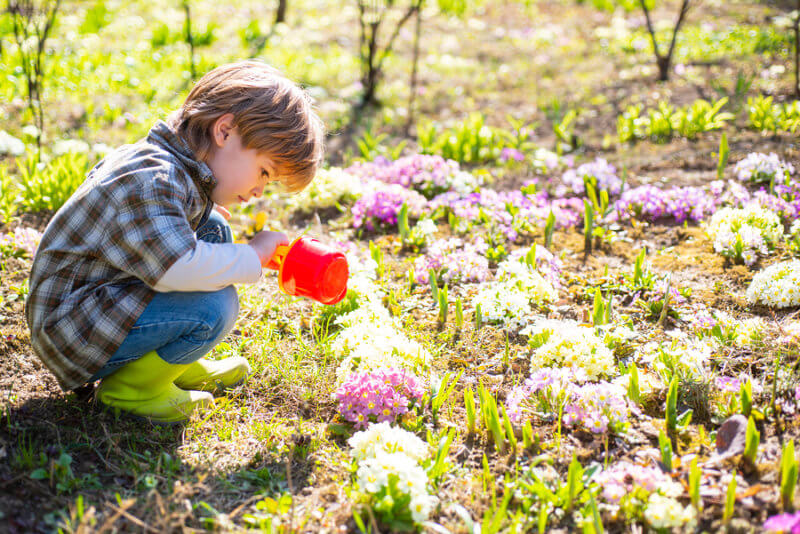Down the Free E-Book Life at Home During COVID-19
None of us were prepared for the rapid changes that took place with the closing of community classes and programs. This ebook is ideal for helping ease that transition into isolation at home.

During this period of at-home learning, starting a garden is a great long-term project that has numerous benefits. Lessons can be taught through online learning and videos. Gardening can also be an activity that unites a group of people through a common purpose. For example, when this period of isolation is over and school resumes this fall, the things that were grown can be brought in to share, and the growing experience shared through journals and progress photos. This can also be a way to keep a class together as an online sharing project through weekly reports.
In August of 2019, we put our adult son Marc in a horticulture class for the first time. It was through the Cerebral Palsy Alberta. Little did we know what a life-changing experience that would be. In this current period of COVID-19 isolation, this class moved to an online format and it has been a lifesaver. Growing your own flowers, fruits and vegetables teach a valuable lesson in self-sufficiency and it’s a skill you can use for your lifetime.
What is it about gardening – planting, tending, harvesting, and eating what you grow – that is so therapeutic?
Activities in the garden can address both gross and fine motor skills. Here are some examples:
You don’t have to wait for the good weather to start a garden, nor to you need fancy equipment. You can start planting seeds by using eggshells, toilet paper rolls, paper cups, and other common household items. You don’t even have to buy seeds if you don’t want to because you can find seeds from the foods you already eat like apples. Here is a list of 16 foods that will re-grow from kitchen scraps. What a great science lesson to do at home! It also teaches children how to be frugal and re-use what is around them. Looking for free seeds? Here are some ways to get them.
When plants become too big for the planter they are in and it’s time to move them outside, you can transplant them into larger containers such window boxes, planters, hanging baskets, or any other container that holds soil. You can also use cement blocks or bricks to make an area that fits your space for planting outdoors. The clever Farmer’s Almanac has a superb article on constructing a do-it-yourself garden with limited supplies during quarantine (housebound).
There are many topics you can teach around gardening such as:
Children can have projects around plant growth such as keeping a journal on the development, taking photos and sharing with others, and researching recipes to eventually use what they are growing. If you are looking for specific gardening lesson plans for various age groups, click here. Here is a list of the 10 Best Gardening Resources for schools.
For individuals with autism, there are many benefits to gardening.
There are lots of resources on how to start a garden and what to grow. I like this article for vegetables. Some vegetables are easier than other so try to start with something fairly forgiving. Enjoy your gardening projects in whatever space you have available – please share your experiences and photos in the comments section. We’d love to hear from you!
Adults with Autism and Gardening
The Autistic Gardener – UK show about gardening presented by Alan Gardner who has Asperger Syndrome.
The Farmer’s Almanac – This site has absolutely everything about growing things, recipes and a section just for kids.
Gardening for Children with Autism Spectrum Disorders and Special Educational Needs – A book that offers a simple gardening program that empowers teachers and parents with little gardening know-how to get outside and use nature to help children with autism and special needs to play, learn and socialize.
Sensory Gardens for Autism– An article about the benefits of a sensory arts garden.
Tips on Gardening with Children with ASD
Editorial Policy: Autism Awareness Centre believes that education is the key to success in assisting individuals who have autism and related disorders. Autism Awareness Centre’s mission is to ensure our extensive autism resource selection features the newest titles available in North America. Note that the information contained on this web site should not be used as a substitute for medical care and advice.